Publications
Articles, publications, books, tools and multimedia features from the U.S. Institute of Peace provide the latest news, analysis, research findings, practitioner guides and reports, all related to the conflict zones and issues that are at the center of the Institute’s work to prevent and reduce violent conflict.
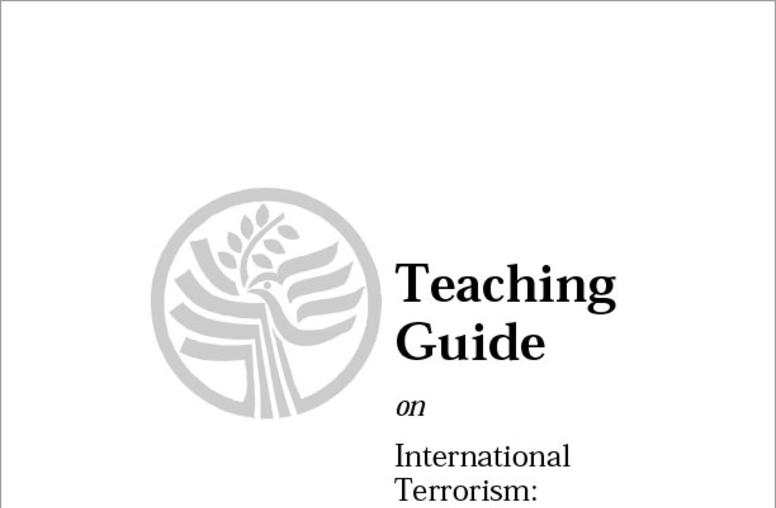
International Terrorism: Definitions, Causes and Responses
Dealing with terrorism has become the centerpiece of U.S. foreign policy today. Yet terrorism, its definition, causes, and methodsof dealing with it, has rarely been dealt with in high school courses. The Institute has developed this guide to assist teachers in helping their students identify and understand terrorism. The teaching guide provides teachers with lesson plans, bibliographic sources, and factual material that address the varying views and definitions of terrorism, some of terroris...
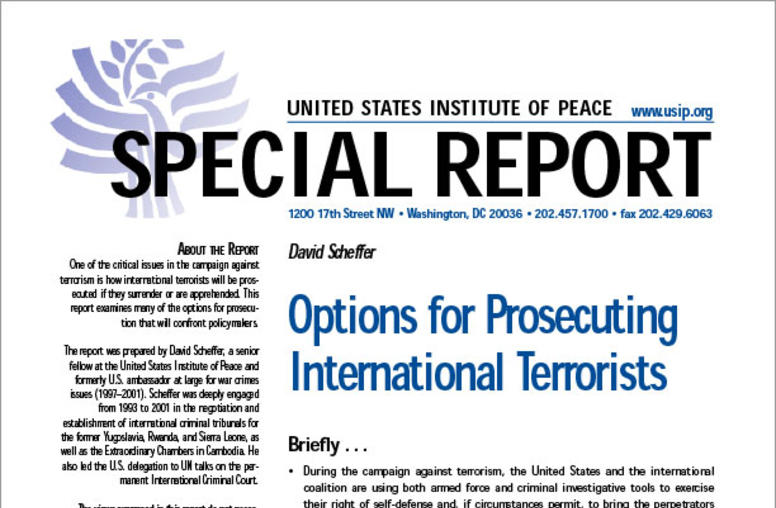
Options for Prosecuting International Terrorists
Summary During the campaign against terrorism, the United States and the international coalition are using both armed force and criminal investigative tools to exercise their right of self-defense and, if circumstances permit, to bring the perpetrators to justice. The latter goal has been instrumental in building the international coalition against terrorism. Grounds for criminal prosecution of the al Qaeda terrorist suspects include outstanding U.S. indictments, UN Security Council...
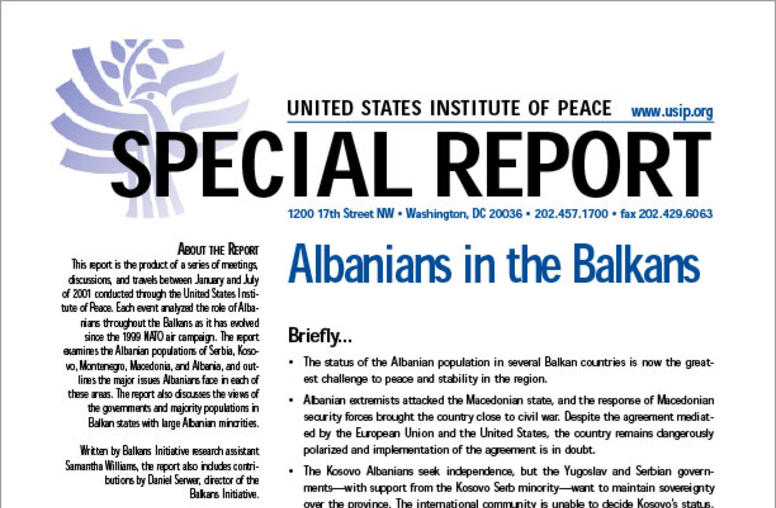
Albanians in the Balkans
Summary The status of the Albanian population in several Balkan countries is now the greatest challenge to peace and stability in the region. Albanian extremists attacked the Macedonian state, and the response of Macedonian security forces brought the country close to civil war. Despite the agreement mediated by the European Union and the United States, the country remains dangerously polarized and implementation of the agreement is in doubt. The Kosovo Albanians seek independence...

A Strategy for Stable Peace
In A Strategy for Stable Peace, three eminent diplomats and scholars from Europe and the United States urge us to make the new decade a turning point in history. In place of the wars and near-wars that have plagued Euroatlantic relations over centuries, close and enduring cooperation can gradually be built on the basis of shared interests and common values.

The Great North Korean Famine
A compelling and revealing book for specialists and general readers alike,The Great North Korean Famine takes us not only behind the well-guarded borders of the brutally incompetent “Hermit Kingdom” but also into the policymaking labyrinth where ethics and politics clash in the struggle to shape foreign policy.
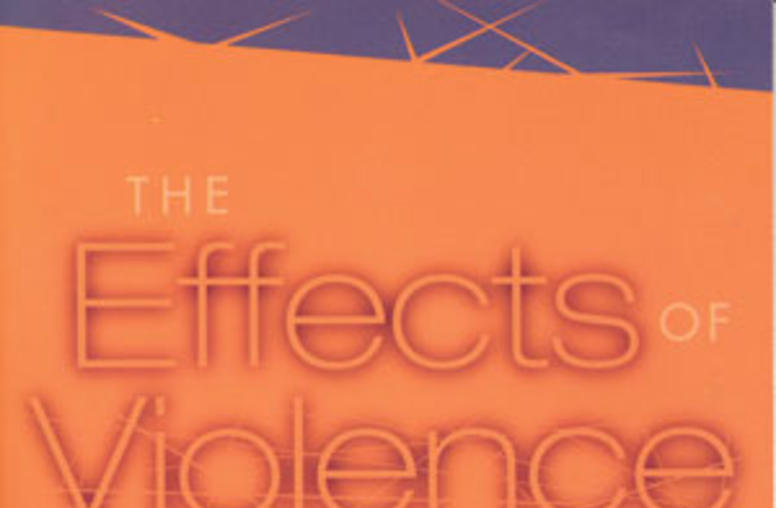
The Effects of Violence on Peace Processes
This book analyzes the nature and impact of four interrelated kinds of violence: violence by the state, violence by militants, violence in the community, and the emergence of new violence-related issues during negotiations.
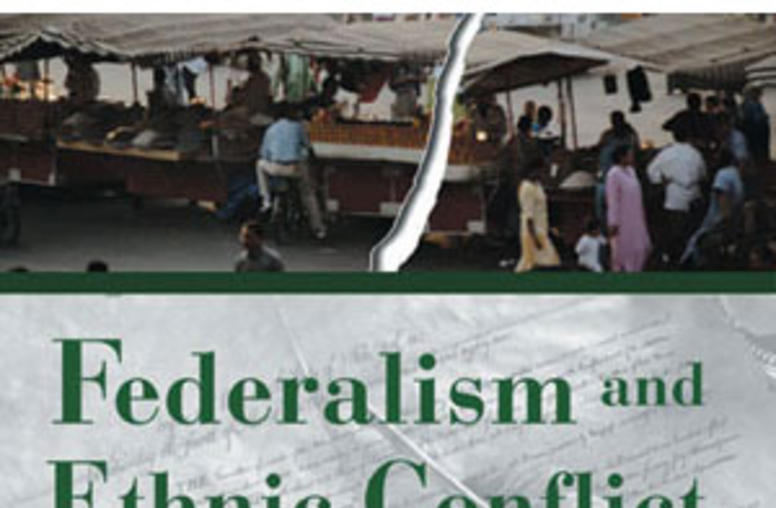
Federalism and Ethnic Conflict in Nigeria
In this compelling new work, Suberu examines the profound political contradictions that make up Nigeria, a nation whose leaders have constantly tinkered with a colonial federal legacy that sought to balance the country’s three major ethnic groups. He explores the evolution of Nigerian federalism through its various constitutional experiments and administrative redesigns, including those in the periods of military rule.
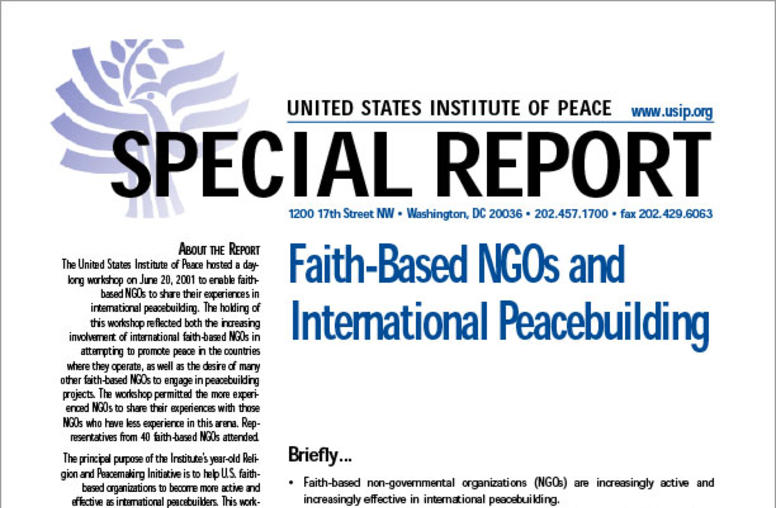
Faith-Based NGOs and International Peacebuilding
Summary Faith-based non-governmental organizations (NGOs) are increasingly active and increasingly effective in international peacebuilding. Faith-based organizations have a special role to play in zones of religious conflict, but their peacebuilding programs do not need to be confined to addressing religious conflict.
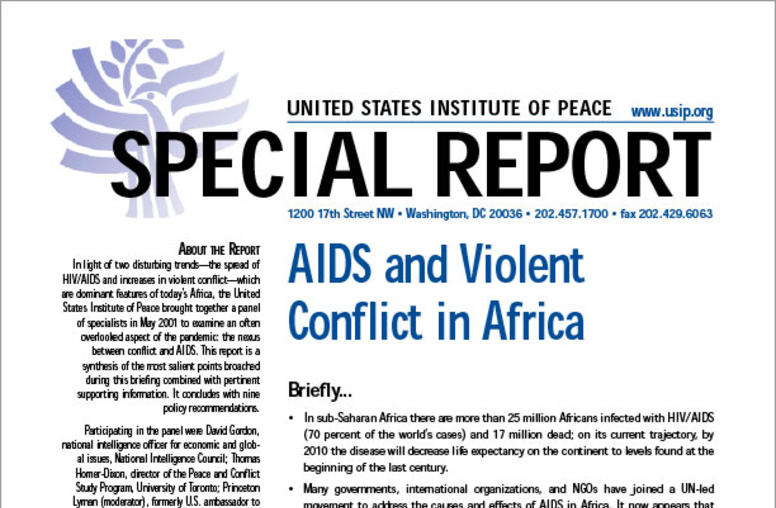
AIDS and Violent Conflict in Africa
In light of two disturbing trends--the spread of HIV/AIDS and increases in violent conflict--which are dominant features of today's Africa, the United States Institute of Peace brought together a panel of specialists in May 2001 to examine an often overlooked aspect of the pandemic: the nexus between conflict and AIDS. This report is a synthesis of the most salient points broached during this briefing combined with pertinent supporting information. It concludes with nine policy recommendation...
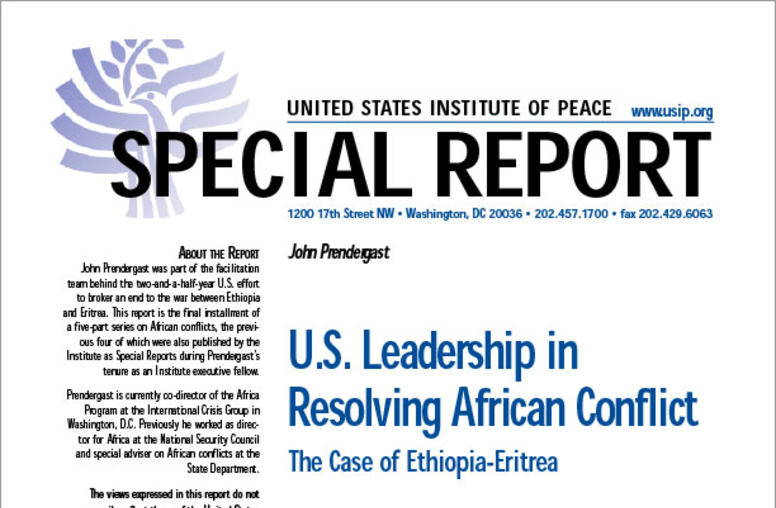
U.S. Leadership in Resolving African Conflict: The Case of Ethiopia-Eritrea
John Prendergast was part of the facilitation team behind the two-and-a-half-year U.S. effort to broker an end to the war between Ethiopia and Eritrea. This report is the final installment of a five-part series on African conflicts, the previous four of which were also published by the Institute as Special Reports during Prendergast's tenure as an Institute executive fellow.